
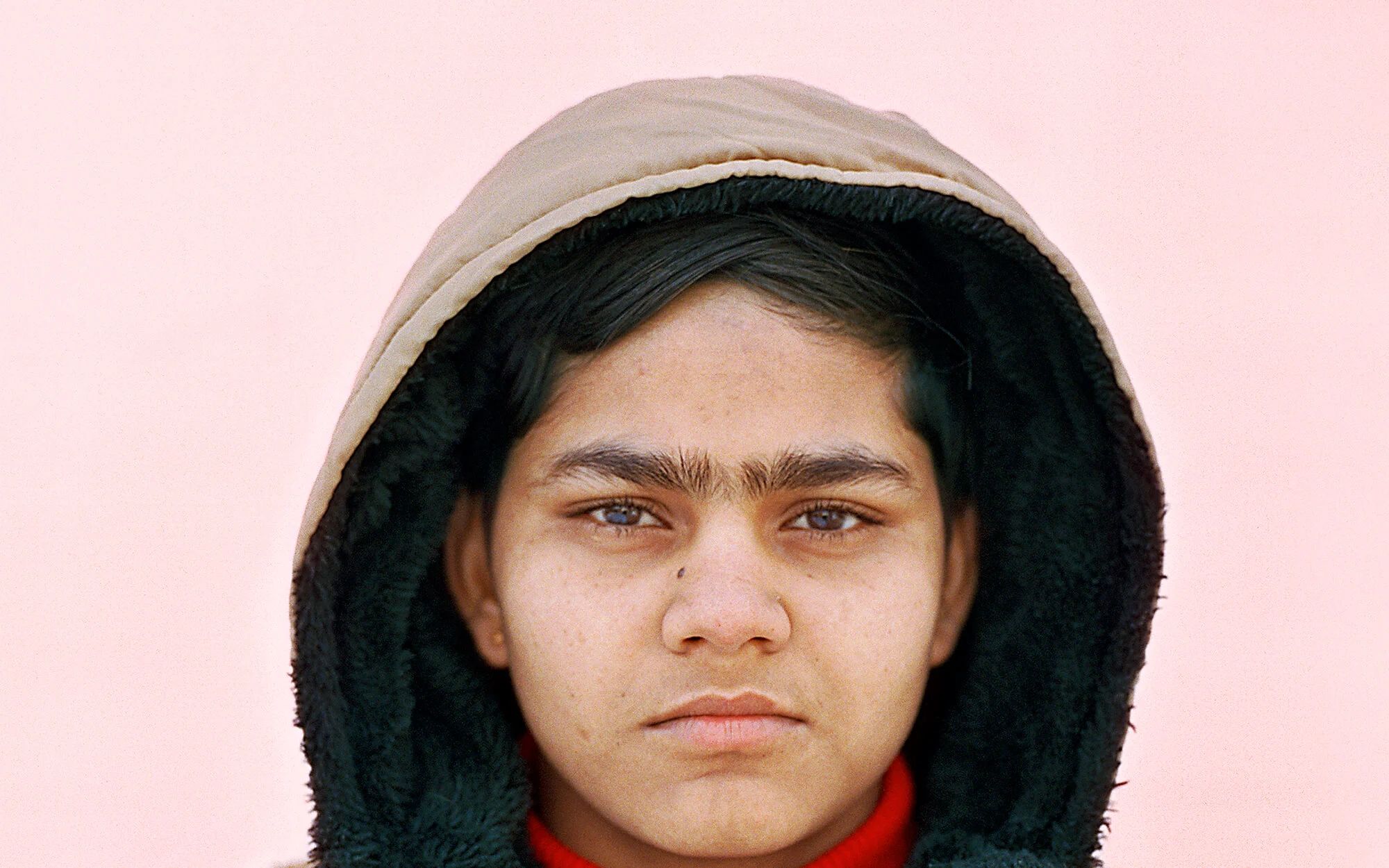
In January 2020, Prarthna Singh and Snigdha Poonam set up a tent on the roof of Prarthna’s parents’ house in her hometown in Jaipur. They had invited dozens of people between the ages of 18 and 25 across a broad range of social, political and economic backgrounds to come and talk to them. Prarthna photographed them while Snigdha took notes. They also recorded these interviews, which are in a mix of Hindi and English. The result is Waiting: A Portrait of Young India. Here, Snigdha tells us how the project came about.
“In 2019, Prarthna and I first worked as a writer-photographer team to profile a young TikTok star from an Indian village for The Economist’s 1843 magazine. That collaboration set off a series of phone calls; we discussed what we knew about the world of young Indians and how much more there was still to know. I had recently published a book that followed the lives of six youngsters in small towns, and she was working on a series of portraits of young female athletes in a north Indian province. We discussed a larger project looking at the Indian youth that could accommodate the country’s thrilling diversity. That’s how Waiting: A Portrait of Young India began.
Currently, 50 percent of India’s population is aged 25 or younger. Worldwide, Generation Z (people born between the late 1990s and early 2010s) stands for change, because of the circumstances in which they’ve come of age. They were born as global citizens and grew up expressing themselves in status updates. If anything defines India’s twenty-somethings, it’s the contradictions they face on a day-to-day basis. They aspire to the fantasies they see play out on the screens of their smartphones, while reckoning with the inequalities of caste and gender driving Indian society. To get even a basic job, they must join a workforce that swells with close to five million entrants every year and beat an economy in a free fall. The latter has left many young Indians chasing careers outside of the vacant factories and closing offices.
They aspire to the fantasies they see play out on the screens of their smartphones.
Now, their income sources can include competitive baking, or live-streaming aspects of their daily life. Members of an increasingly polarized society, their politics can be shaped both by their personal identity or exposure to fake news cycles, as I have learnt through my reporting. Over the past few years, the collective anger and frustration of the youth have charged jingoistic campaigns as well as democratic protests.
After weeks of planning and research, we started this project in January 2020 in Prarthna’s hometown of Jaipur. We set up a tent on the roof of her parents’ house and invited dozens of people between the ages of 18 and 25 across a broad range of social, political and economic backgrounds to come and talk to us. As Prarthna photographed them, I made notes.
This ongoing project seeks to understand how India’s youth define themselves amidst the chaos of their everyday lives. These stories – of wrestlers and protesters, farmers, pastry chefs and breakdancers and jewellers – document the making of a new India.
The profiles you see here are excerpted from a wider and more diverse collection made in Jaipur. Over the coming years, we aim to take the project across the country, hoping to showcase the complete series as India approaches its next – and pivotal – national elections in 2024. Our next stop: My hometown: Ranchi.”
Aakarsh Gothwal, 23, law student and aspiring performer

Ideally, I’d have a job that allowed me to wake up in the morning and teach yoga or dance – anything to do with movement!
“I love dancing and movement. Anything from aerobics, to street music or hip-hop. My favorite rappers are Nas, Eminem, 50 Cent, Cardi B and Drake. I mostly do B-boying, some Bollywood and a little bit of Bhangra. I trained for a year in dance then dropped out to pursue law because my parents – both lawyers – told me to ‘get a degree.’ The thing is, I’m not interested in studies. I can paint, I can play guitar, harmonium, tabla, dholak. I’m working on my portfolio, spending time shooting videos [of myself] performing. This is because I’d like to pursue a career in performing arts after I’m finished with law. Sadly, Jaipur doesn’t have much of a scene for that, which is why I’m kind of stuck here.
Ideally, I’d have a job that allowed me to wake up in the morning and teach yoga or dance – anything to do with movement! For me, money isn’t the be-all and end-all. I just don’t want a life spent in an office.”
Lokendra Singh Raythalia, 23, student leader
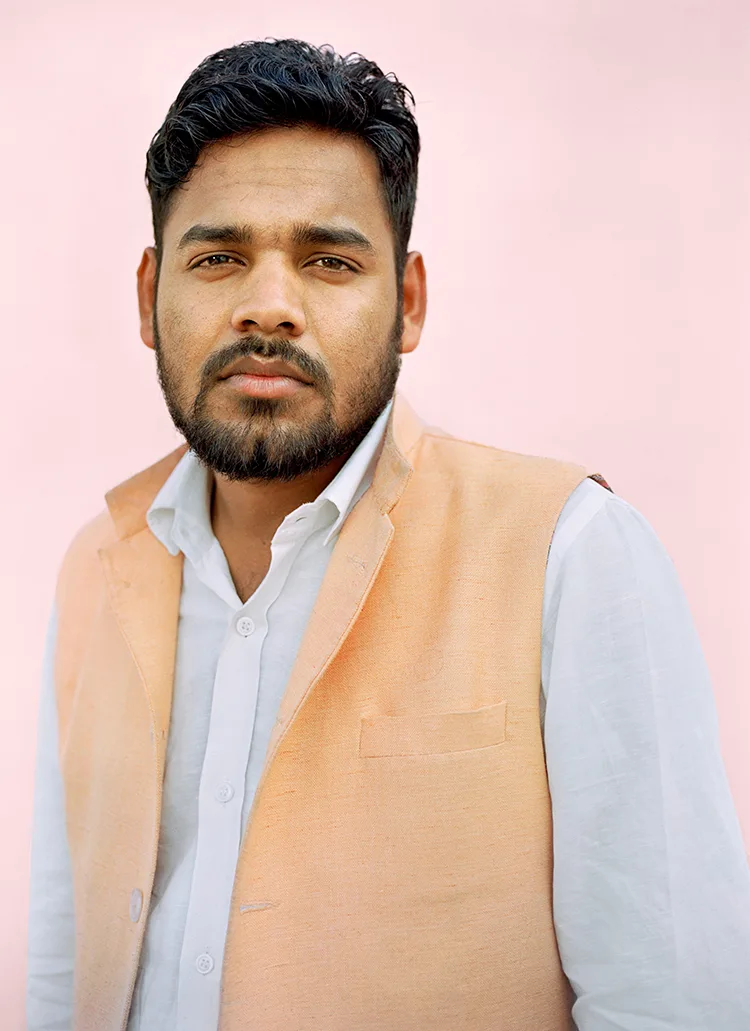
It’s very difficult for a poor person to enter the world of politics, but it’s something I had always wanted to do.
“I am from a village called Raythalia. My father is a truck driver, and my mother is a housewife.
In India it’s very difficult for a poor person to enter the world of politics, but it’s something I had always wanted to do. I’ve been running in elections since I was in the 11th grade, and have been following the ideology of ABVP [the world’s largest student organization] since I was a child. After entering the University of Rajasthan I joined its campus outfit and now I’m campaigning for the post of president of the university’s students’ union.
My role models are Mahatma Gandhi and Narendra Modi. The prime minister has given India a new image fitting with the 21st century. In global politics, I admire Barack Obama. Like Modi, he came from an ordinary family. He fought against racial prejudice in American politics.”
Neha Naik, 19, gas station attendant
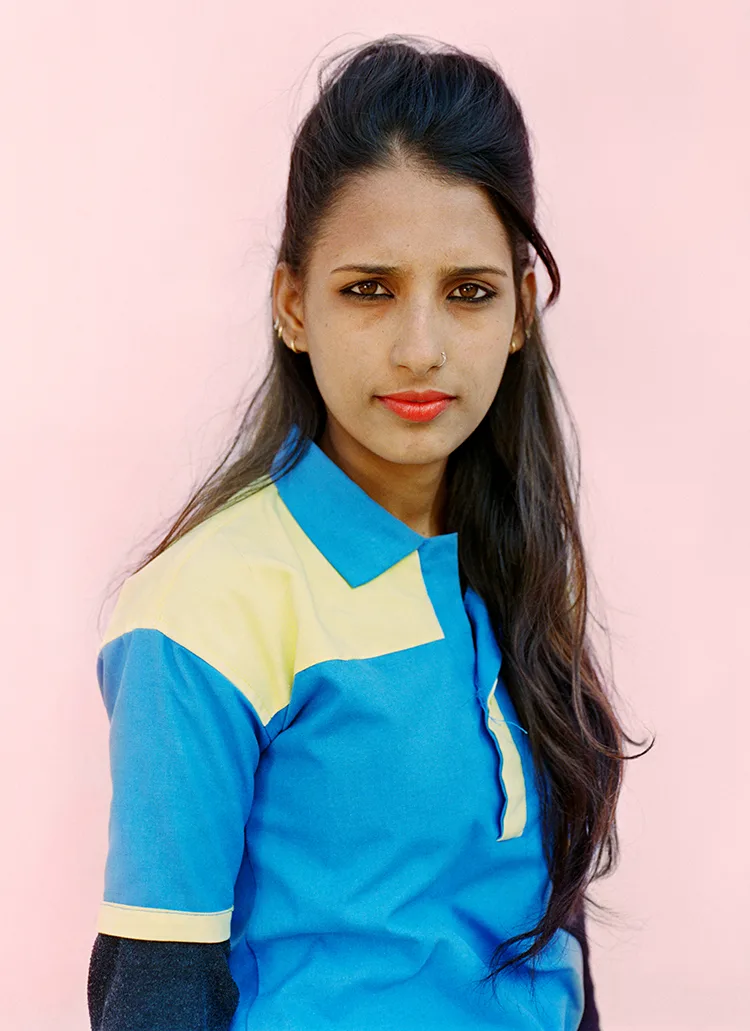
I had no option but to drop out of school and start helping at home while my mother found work as a cook in order to support us all.
“I am one of eight sisters. My father, who used to drive an auto rickshaw, died when I was very young, so I had no option but to drop out of school and start helping at home while my mother found work as a cook in order to support us all. It was tough for the family initially. My mother used to have to go to the nearest aanganwadi [a type of rural care center] and bring us food. A year ago, I found a job at a gas station.
At first I was scared about the new job because, up until then, I had spent most of my life at home. I’ve pretty much got the hang of it now. I have to provide all kinds of help. It begins with saying namaste to every customer who drives in. Between my mother and me, we’re able to earn 10,000 rupees ($134) a month. I am happy with the job.”
Diksha Agarwal, 22, home baker
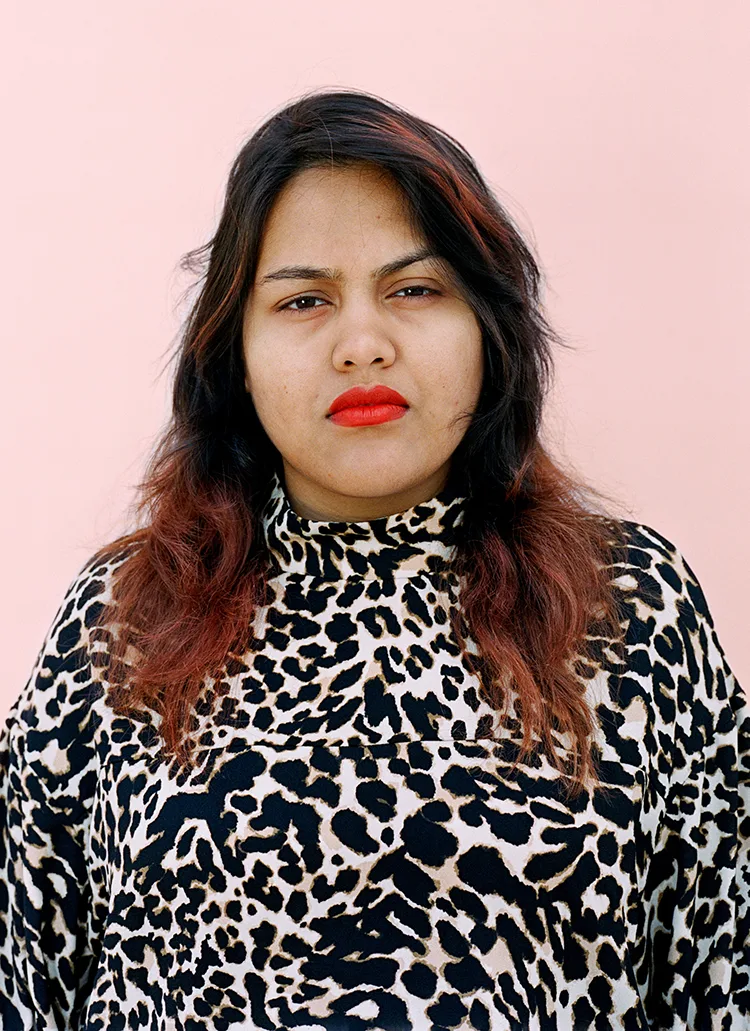
I was one of the three who made it to the next round in Mumbai, but my father wouldn’t let me go.
“I’m really into baking. I’ve been cooking brownies since I was 12. I grew up watching Gordon Ramsay and Nigella Lawson on TV. In 2020, I was a finalist on season six of MasterChef India. For the first round, held in Jaipur, we all had to make something at home and bring it. I took my Key lime pie.
I was one of the three who made it to the next round in Mumbai, but my father wouldn’t let me go. The thing is, he is a traveler himself. On business, he travels six months across Europe, but still his mentality is, ‘I won’t send my girl to Mumbai unsupervised.’”
Three years ago I started my home baking business, Bakolicious. Our first commission was from my uncle. Now it’s a full-time job. I make between 400 ($5) and 600 rupees ($8) from selling a cake. I also sell pizza and lasagne. I think they are great, and people say my brownies are to die for. I’ve also created my own dish, a recipe I like to call Nutella bombs.”
Ramswaroop Ola, 22 years, student
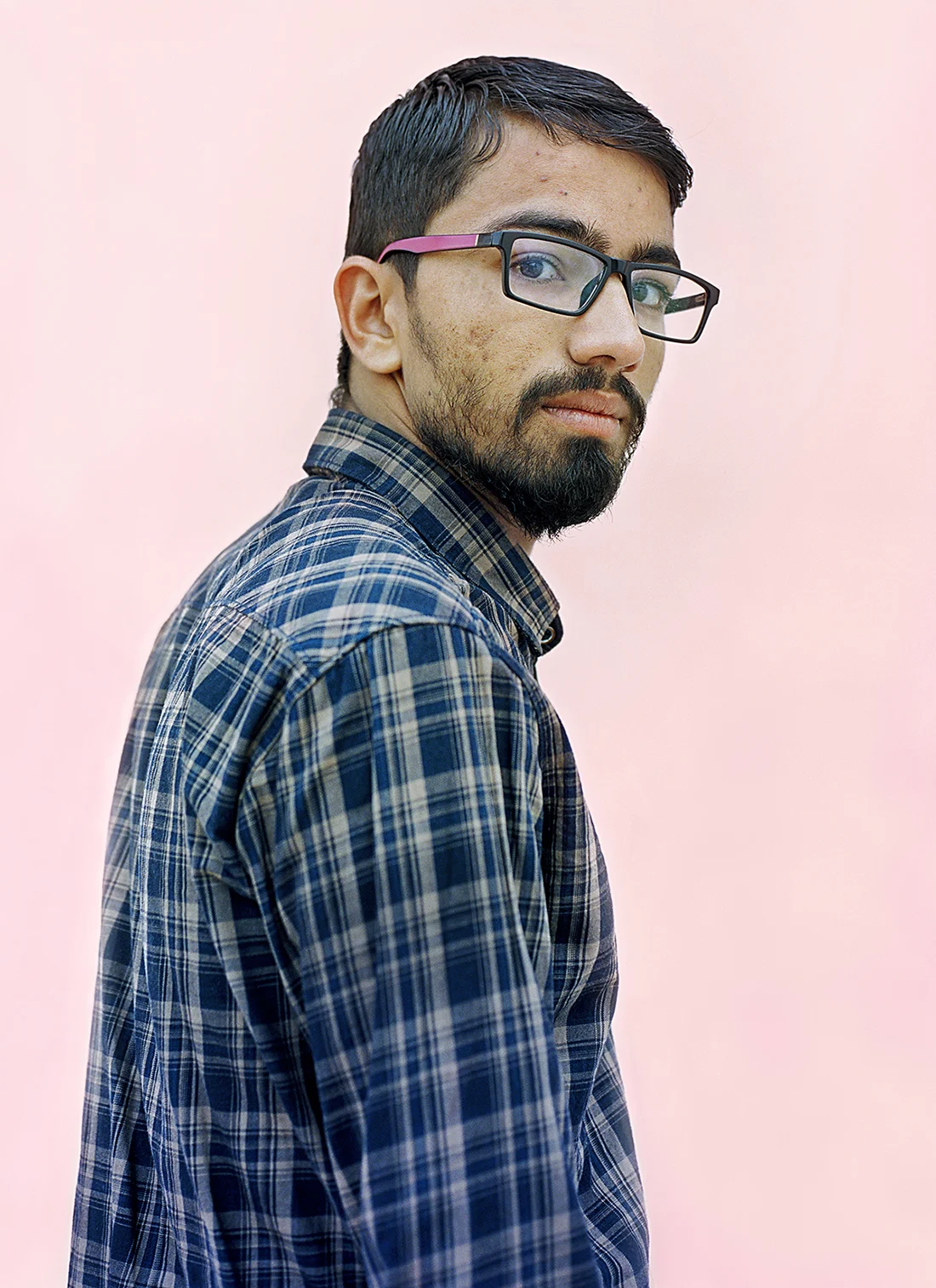
I don’t want to dissolve the marriage like many men do these days.
“I’m from a village near Jaipur. My family has been involved in farming for generations, but it’s no longer a viable option for people my age, because the groundwater in the region has dried up, and everyone must survive on the 60,000 rupees ($804) they make from growing one crop a year during the monsoon season.
In Jaipur, I’m a student at the university, where I study economics. In 2007, 13 years ago, I got married. I was 9 or 10 years old. Despite being prohibited by law, child marriage is very common in the villages here. In these marriages, the wife doesn’t move to her marital home until she is grown up. I haven’t brought my wife home yet. Before I do that I want to be able to stand on my own feet. I don’t want to dissolve the marriage like many men do these days. I don’t want to fall in love with another person. She is waiting for me, and I am giving myself one year.”
Sarthak Kasliwal, 24, jeweller
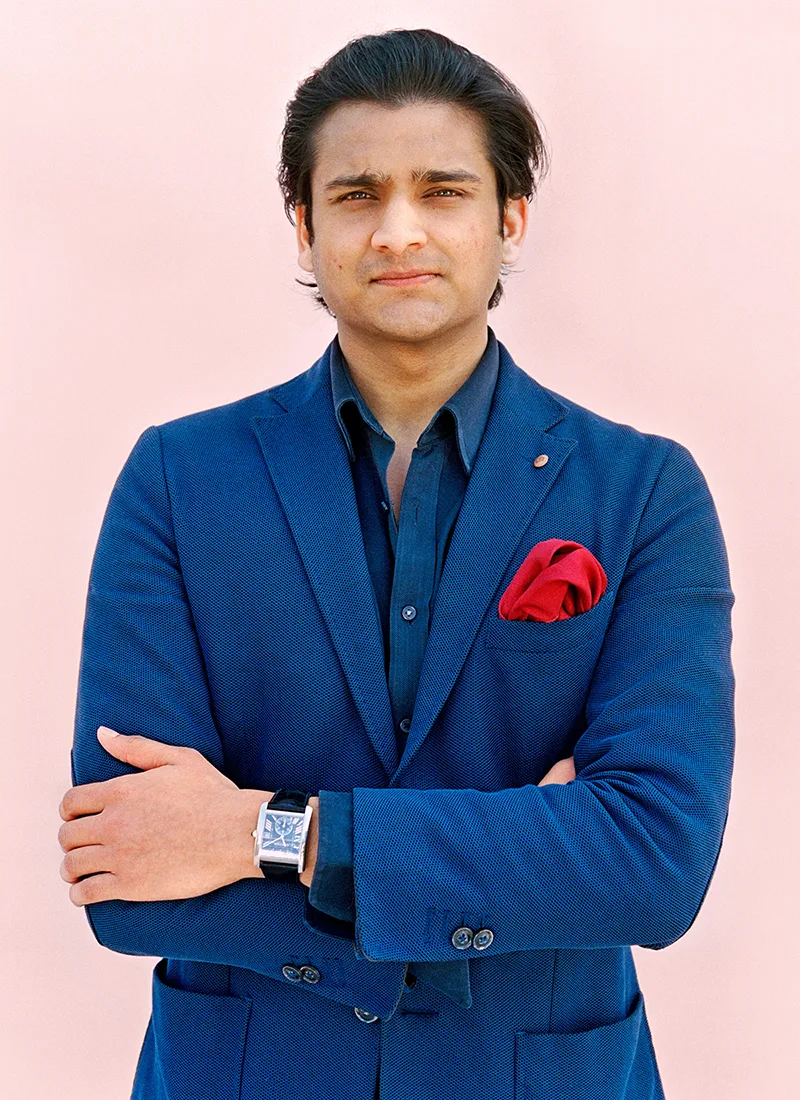
I’m passionate about anything that I am doing with all my heart, be that horse-riding, jewelry design or playing the guitar.
“I see myself as very different from most people. I feel like I have to give my 100% to everything I take on. I’m into theater, and when I’m acting, no matter what the context, I get into the character. I feel it. The part I have most enjoyed playing onstage is Tom Sawyer (from The Adventures of Tom Sawyer). I’m passionate about anything that I am doing with all my heart, be that horse-riding, jewelry design or playing the guitar. If I have to have a desire to do it, then it doesn’t matter if it’s 3am and I am still at it.
You have one human life, and one human life is a rare thing to have, so why not try to really feel something for what you are doing?”
Saba Naz, 21, student and protester
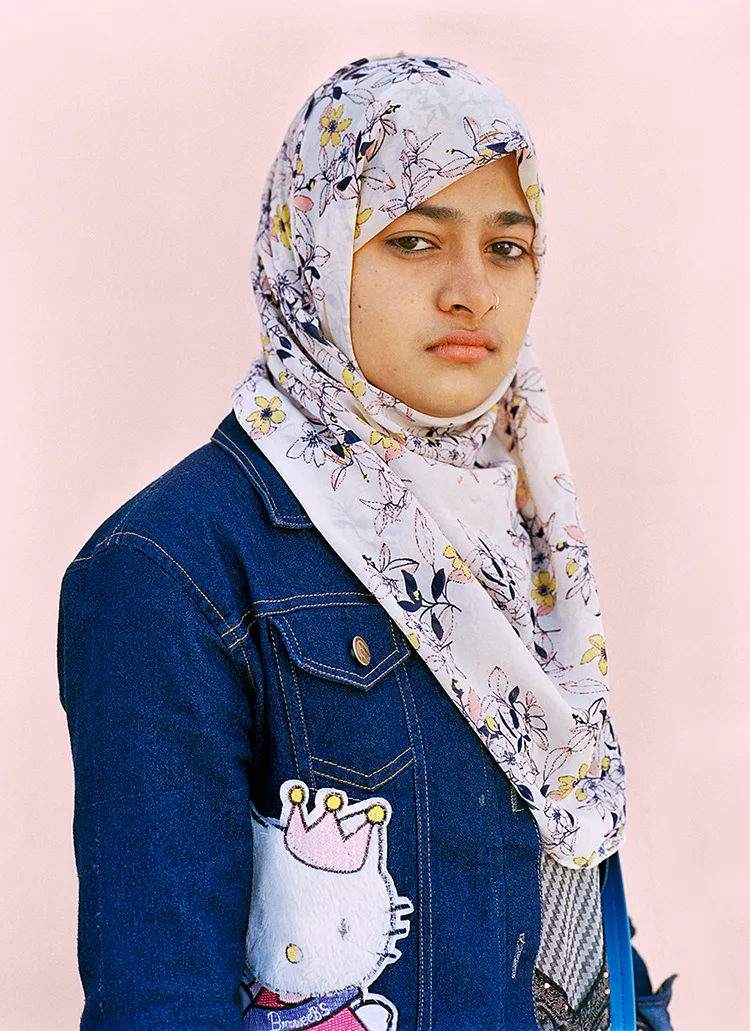
I’m very curious about politics. I always want to know why something is happening and what can be done to change it.
“I’m from a middle-income family and I’m currently pursuing my degree in dental science. One day I want to open my own hospital.
I’m very curious about politics. I always want to know why something is happening and what can be done to change it. I’ve been protesting against the CAA
along with my sisters and many others for weeks now. Every day we gather at 6pm outside Jaipur’s Albert Hall. We shout slogans, read protest poems and sing songs. I’ve also traveled to Delhi with my father to join the women’s protest against the new citizenship law in Shaheen Bagh. This issue has been dragging on for so long that at times I feel I’ve become a full-time protester, when I kind of want to go back to being a student.
I’m also a member of a nationwide student group called the Girls’ Islamic Organisation, in which we try to counter Islamophobia by giving lectures in schools.”
Chanchal Rajawat, 24, student
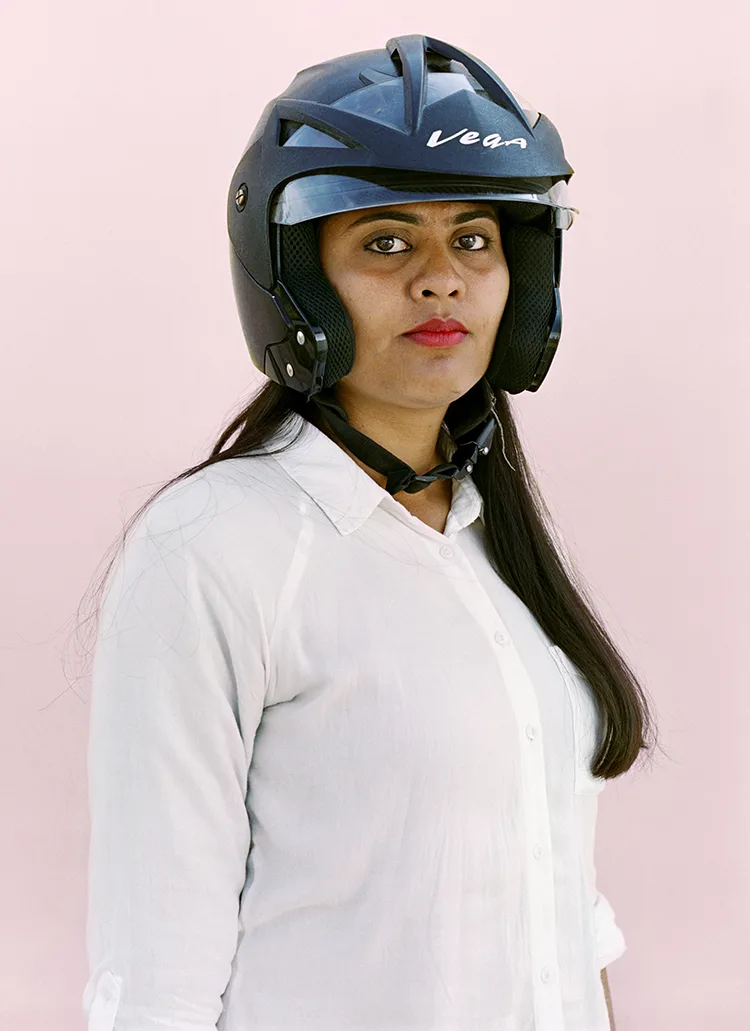
In our family, the education and income level of the women doesn’t matter. You could be a school teacher and be treated as no more than a housewife.
“I’m a statistics student, and I’m currently preparing to take the entrance exam for the Indian Statistical Service.
I want to leave this place. I want to see the world. I don’t want to end up like my sister and my other female relatives. My sister is an assistant in a city court. It’s a pretty big deal to assist the judges, and she knows so many important people at work, but her opinions have no value in her house. I want to maintain my self-respect. I’ve concluded that becoming a public officer is the only thing that can help me achieve that.
In our family, the education and income level of the women doesn’t matter. You could be a school teacher and be treated as no more than a housewife. Literally, no one values your achievements. In fact, the men in my family like to joke that even if I become an officer, I won’t be taken seriously. I can’t wait to prove them wrong.”
Akash Kumar Verma, 21, chef
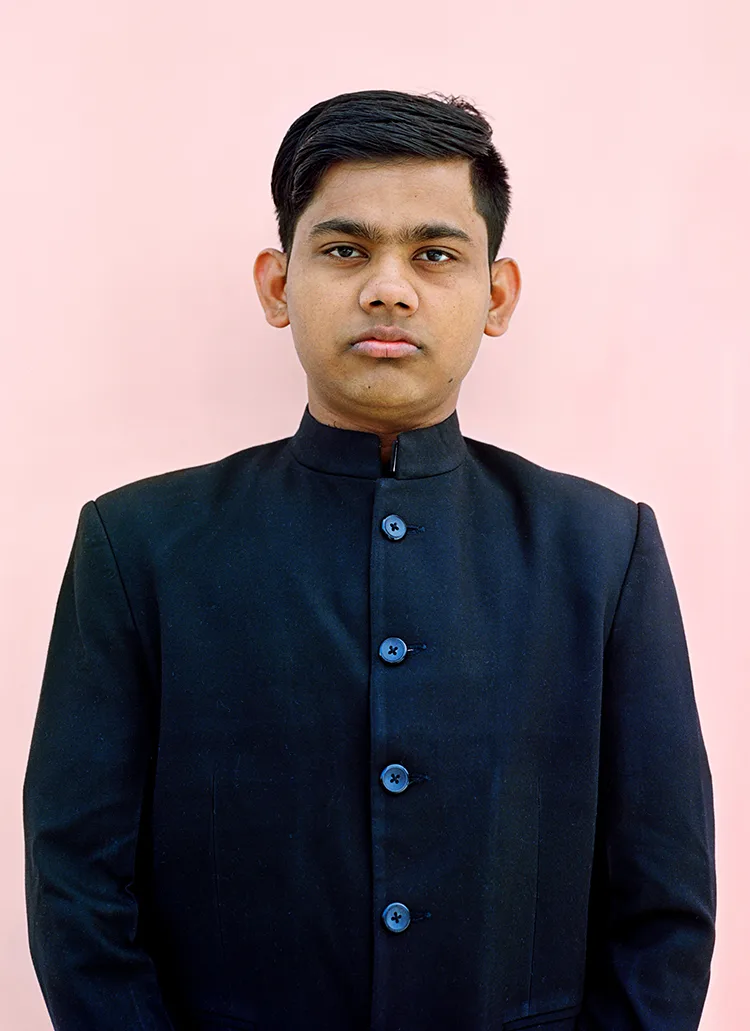
Ultimately, I want to be the head chef at a restaurant. I’m giving myself 10 years to get there.
“My father died a few years ago, and our family was going through a financial crisis, so I began working when I was 18. Now I am a professional chef. Before I started my job I had only cooked at home, which I used to enjoy. I would make normal stuff: chow mein, pakodas, that sort of thing. I was professionally trained at a Jaipur restaurant called 28 Kothi for six months. There, I learned how to make recipes like mulligatawny stew or quinoa biryani. I was also trained in continental cooking: pasta, falafel, mezze, anti mezze. I also really enjoy making soba noodles.
Recently, I decided it would be a good idea for me to have a backup plan. I heard about a vacancy for a life insurance agent and applied right away, which means I can work as an LIC (Life Insurance Corporation of India) agent now, going door-to-door to sell the policies. I do this in the evenings after I’ve finished my restaurant shift.
Ultimately, I want to be the head chef at a restaurant. I’m giving myself 10 years to get there.”
Khushboo Kanwar, 18, wrestler
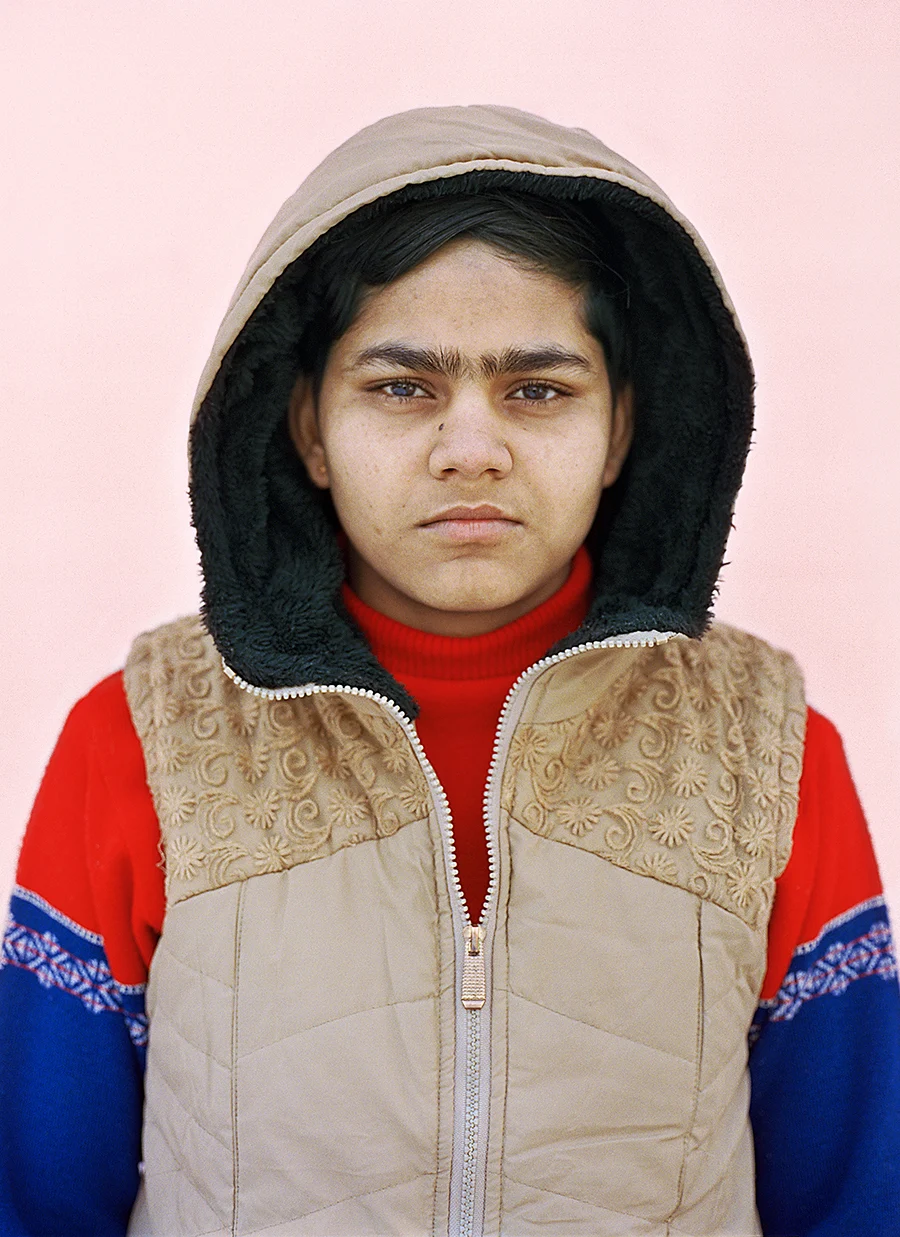
I wrestle with both boys and girls. The boys used to treat girls as inferior, but not any more.
“I come from a poor family. My father had a heart operation, so he doesn’t work anymore. He used to be a driver for a jeweller. Regardless of our financial condition, my parents have always pushed me to pursue my passion for wrestling.
My favourite technique is ‘dhobi lagana.’ You sit on your haunches, grab your opponent by their shoulders and haul them over your back until they go upside down. If their shoulders hit the mat behind you, you get four points.
I wrestle with both boys and girls. The boys used to treat girls as inferior, but not any more. Now, girls are racing ahead in Indian wrestling. In the future, I’d like to either get a police job through the wrestling quota or become a coach. If I become a coach, I’d really like to train kids from poor families and campaign for more girls to join the sport.”

